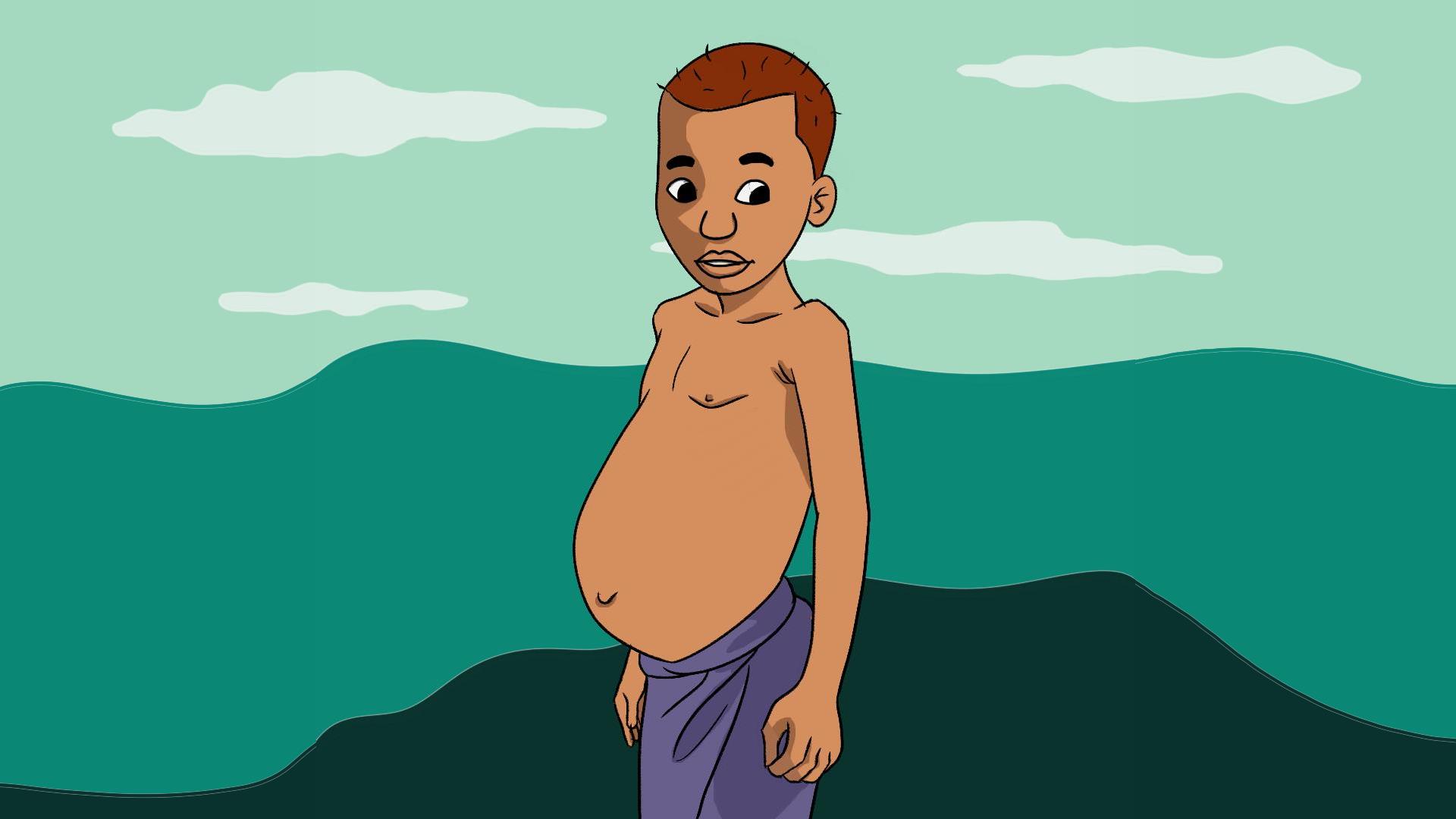🎧 Listen to: Kwashiorkor

Kwashiorkor
What is kwashiorkor?
Kwashiorkor is a severe form of malnutrition caused by a lack of protein in the diet. The name comes from the Ga language of Ghana, meaning “the sickness the baby gets when the new baby comes.” This happens because older children stop breastfeeding too soon when a new sibling is born, and they don’t get enough protein-rich foods to replace breast milk.
This condition is commonly found in Africa, especially in areas where food shortages, poverty, and natural disasters like droughts or floods make it difficult for families to afford or access nutritious meals. Kwashiorkor mostly affects children under five years old and, if not treated early, can lead to stunted growth, intellectual disabilities, or even death.
How common is kwashiorkor in Africa?
Kwashiorkor is still a major problem in many African countries. According to the world health organization (WHO), millions of children in sub-Saharan Africa suffer from severe malnutrition every year. Countries like Nigeria, Ghana, Ethiopia, and Sudan have reported high cases of kwashiorkor, especially in rural areas where families rely heavily on starchy foods like maize (corn), cassava, and yams, which lack enough protein.
In some regions, more than 30% of children under five suffer from malnutrition, with kwashiorkor being one of the most severe forms. This shows that many African families need better access to affordable and nutritious food.
What causes kwashiorkor?
Kwashiorkor happens when a person’s diet lacks enough protein. Protein is essential for body growth, cell repair, and the production of important body chemicals. Without it, the body starts breaking down its own tissues, leading to serious health problems.
Common causes include:
- Poor diet: Eating mostly starchy foods like maize, cassava, or yam without enough protein sources such as beans, fish, eggs, or meat.
- Food shortages: Droughts, floods, wars, and economic hardships make food expensive and scarce.
- Lack of education on nutrition: Some parents may not know the importance of a balanced diet for their children.
- Infections: Diseases like HIV, malaria, and tuberculosis weaken the body and increase the risk of malnutrition.
What are the symptoms of kwashiorkor?
Kwashiorkor is easy to recognize because of the swelling (edema) it causes in children. Instead of looking thin like other malnourished children, kwashiorkor patients often have swollen feet, legs, and a big belly filled with fluid.
Other symptoms include:
- Swollen feet, belly, and face (due to fluid buildup)
- Thin arms and legs
- Dry, peeling, or darkened skin
- Weak muscles and slow growth
- Hair changes (turning reddish or yellowish and falling out easily)
- Irritability and constant crying
- Frequent infections due to a weak immune system
- Diarrhoea and dehydration
How is kwashiorkor diagnosed?
Doctors can diagnose kwashiorkor just by looking at the child and asking about their diet. However, tests like blood tests and urine tests may be done to check for nutrient deficiencies and other health complications.
How is kwashiorkor treated?
Kwashiorkor can be treated, but early treatment is crucial to avoid long-term damage.
Steps in treatment include:
- Slowly introducing more food: The child is first given foods rich in energy like porridge or rice before introducing protein-rich foods like beans, fish, milk, and eggs.
- Providing supplements: Doctors may give special foods like Plumpy’Nut (a peanut-based paste) or KokoPlus, which are used in Ghana to help malnourished children recover.
- Treating infections: Many kwashiorkor children have infections that need antibiotics.
- Monitoring and long-term nutrition education: Parents are advised on how to provide a balanced diet to prevent a relapse.
What are the complications of kwashiorkor?
If kwashiorkor is not treated early, it can cause:
- Permanent stunted growth (short height and weak muscles)
- Mental disabilities (affecting learning and intelligence)
- Weakened immune system, making children more vulnerable to infections
- Organ failure, leading to death in severe cases
How can kwashiorkor be prevented?
The best way to prevent kwashiorkor is to ensure that children get enough protein in their diet. This can be done by:
- Eating a balanced diet with protein-rich foods like beans, groundnuts, fish, eggs, and milk.
- Encouraging breastfeeding for at least the first two years of a child’s life.
- Using affordable nutrition supplements like KokoPlus and Plumpy’Nut, which are available in many health centers in Ghana and other African countries.
- Educating families on the importance of good nutrition, especially in rural areas.
Government support by making nutritious food more accessible and affordable.
